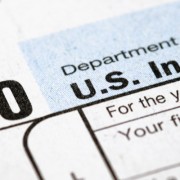Tax Tips for Newlyweds
The tax implications of marriage are probably not the first thing on the minds of most newlyweds, but paying a little attention to it now can save time and even money later. Here are a few tips to help those who are about to embark on a new life together.
Tip 1: Notify the Social Security Administration with any name change(s). The IRS has a name match program with the SSA and will potentially reject deductions and joint filing if the name change is not made timely. Do this by filing Form SS-5 with the SSA.
Tip 2: Use Form 8822 to update your address with the IRS if either of you is moving.
Tip 3: Change your name and addresses with your employer and the Postal Service to ensure your W-2s are correctly stated and delivered to the proper address.
Tip 4: If selling one or two residences, make sure you review how capital gains tax laws apply to your situation. This is especially important if one of you has been in your home for only a short time or if either home has appreciated in value.
Tip 5: Review legal documents to ensure legal titles are as you wish them to be. This includes bank accounts, titles on property, credit cards, insurance policies, and living wills.
Tip 6: Recalculate your payroll withholdings and file a new W-4. If both newlyweds work, your combined income could put you into a higher tax bracket. This phenomenon is referred to as “the marriage penalty.” By changing withholdings now, you can avoid a big surprise at tax time.
Tip 7: Review your employee benefits and make necessary changes in health care, insurance, retirement account beneficiaries, and tax-preferred spending accounts. Marriage is a qualified event to make mid-year changes by most employees.
If you or someone close to you has questions about marriage and taxes, give us a call. We’d love to help.





